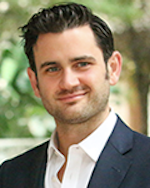This Washington Post article is anti-dentite
This article originally appeared in the Principles of Practice Management e-newsletter. Subscribe to this informative twice monthly practice management ENL here.
The Washington Post published a story by Mary Jordan titled, “The Unexpected Political Power of Dentists.” The focus of the article was the 2014 legislative victory for dental therapists to practice in Maine. When we shared this news item on the Dental Economics Facebook Page, it blew up; you were very upset about the Post’s coverage of this story. We dentists can be a little sensitive about media coverage; we’re frequently misrepresented in these kinds of stories.
So, was this fair reporting or a hit job on dentists? Here are my takeaways from the article:
(1) Yes, the ADA lobby is very powerful, thank you for noticing. This is something that we should be very proud of. I hope you’re an ADA member and I hope you support ADPAC, the American Dental Political Action Committee. You might say that you are opposed to lobbyism and the current political system, and that’s fine. But this is the system we have right now and I’d like to have someone in the fray who is fighting for our profession and our patients. Would the author prefer we have a weak lobby? What the heck is wrong with a profession advocating for itself?
(2) The author takes the side of Representative Richard Malaby and Senator David Bruns, who supported the therapist bill. The former owned a restaurant that was no longer visited by the Maine Dental Association for its holiday parties. The latter had his personal dentist terminate the doctor-patient relationship. I’m not sure what these facts have to do with the actual story other than to malign dentists. That’s not very fair reporting.
(3) I give the author credit for at least interviewing ADPAC leaders so that there is some balance to the piece. She briefly quotes Mike Graham, who is the senior VP of the ADA Government and Public Affairs. She allows him to correctly represent the ADA’s opinion, which is that only dentists should be able to perform irreversible, surgical procedures. She also speaks with Dr. Jonathan Shenkin, a Maine dentist and former national vice president of the ADA, who is able to get across that we’re fighting for the best care for those who are most in need.
(4) Unfortunately, Graham and Shenkin’s comments are immediately countered by reports from Pew and personal stories of troubled patients who can’t afford care.
I would like to offer Mary Jordan some praise for giving the floor to dentists at least for part of the article. However, it certainly does seem that she had an agenda when setting out to write her story. Access to oral health is a complicated topic in this country. There are people who go without treatment for years and it can be heartbreaking. But to state that the reason they go without treatment is because dentistry is too expensive is not giving this important issue the consideration it needs.
Tooth decay and gum disease is 100% preventable. Preventive services are quite affordable. Preventive and surgical services are given out for free by charitable dentists in their offices and at large scale events like the Missions of Mercy. According to ADA research, the second most popular reason people don’t plan to visit the dentist in the next 12 months is, “My mouth is healthy and I do not need dental care.” Medicaid and Medicare are in need of reform to better protect those most in need. The list of complicating factors goes on.
In conclusion, the Post article wasn’t the least fair story on access to care that I’ve seen, but it was certainly slanted to one side. Dentists care deeply about tearing down the barriers that prevent people from getting the care they need. We are not just an “old boys’ club” looking out for our profits above all other interests. I genuinely believe that you could set up a full network of trained dental therapists around the country and we would still see an access to care problem. We oppose this solution because we think it won’t address the real problems listed above. We need better oral health education, better coverage from public insurance, and most of all, better discussion in the media. The people who struggle to reclaim their oral health deserve better than a biased attack on the ones who are trying to help them.
RECENT EDITORIALS FROM DR. SALIERNO
I'm DUMB, and here's why
A game plan for empty chair time
Which dentist do you want to be today? (Video)
Cheers,








